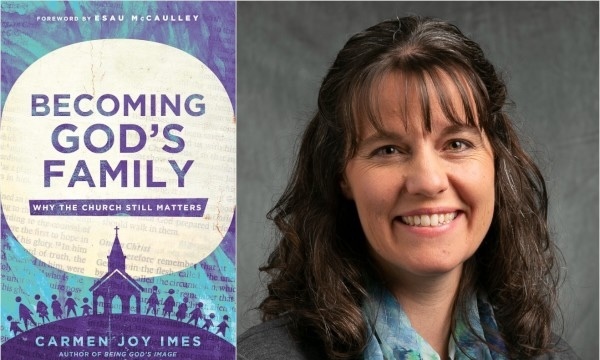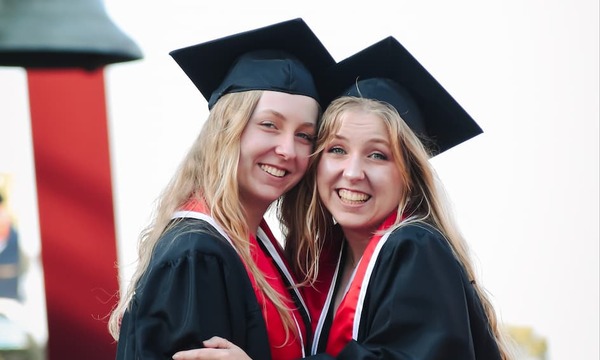Biola University welcomes 12 new faculty members this fall, each of whom represents the university’s mission of biblically centered education, scholarship and service — equipping men and women in mind and character to impact the world for the Lord Jesus Christ. The faculty members join Biola at an inspiring time as in-person classes commenced after 17 months of mostly remote learning. This fall, Biola welcomed new professors with varying experience and research from studying texts in their ancient world context to marketing, management and leadership across cultures to screenwriting for ABC's “George Lopez.”
Learn about Biola’s new faculty and read their thoughts below on the value of Christian higher education and the significance of a strong foundation in their specific fields.
Cook School of Intercultural Studies
Stephanie Calley
Assistant Professor of Intercultural Studies
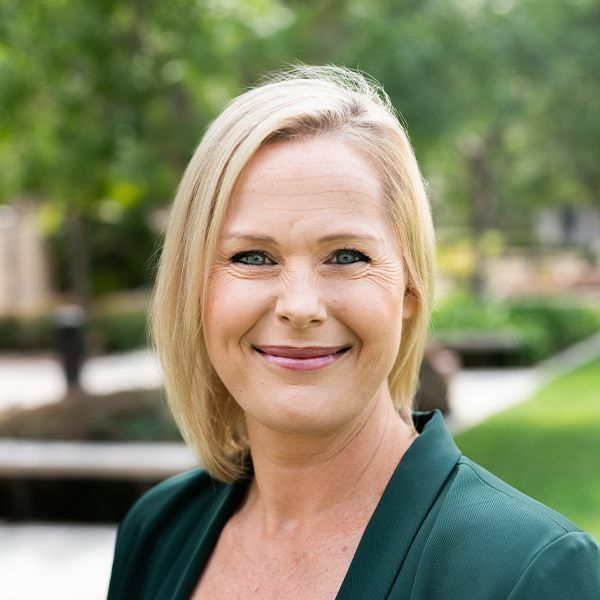
Dr. Stephanie Calley's vocation is to cultivate and empower global leaders by curating resources and opportunities for them to engage in transformative, intercultural learning. God’s calling for her to engage in cultivating global leaders was forged in many foundational experiences such as growing up in a multicultural neighborhood in Long Beach, serving on a church planting team in post-genocide Kosovo and engaging in friendship building with Turkish Muslims in Orange County. Building on that foundation, for the past 15 years she has been engaged in multiple roles with international higher education, focused on building programs and training Global Students. As such, her dissertation was focused on the impact of co-curricular leadership programs on Global Students. She is also a Qualified Administrator of the Intercultural Development Inventory, a cognitive measurement used to assist people in understanding how to navigate intercultural differences.
“In the era of globalization, living and working with diverse others is now the norm. As Christians, we are called to love God and ‘love our neighbor.’ Such a calling to love our neighbors requires that we are able to engage with diverse others who may come from different worldviews and values systems. How we engage is of utmost importance,” said Calley. “Not only do we need a culturally humble posture, but also cultural knowledge and skills. Christian higher education can equip believers with the knowledge, skills, and attitudes necessary to engage as agents of transformation.”
Crowell School of Business
Rachel Bodell
Associate Professor of Marketing, Management, and Leadership
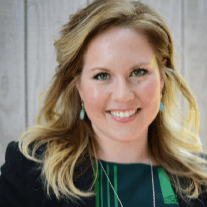
Dr. Rachel Bodell has three business degrees from three different countries including the U.S., France and England. She taught marketing at Azusa Pacific University for the last 14 years. While there, she also recreated a European Business Study Abroad program where students engaged in courses, corporate visits, service and hands-on cultural experiences like city bike and Vespa tours to historical landmarks. Bodell is known for her service-learning and personal branding projects as well as her passion for Biblical integration. Her research and teaching expertise help to connect marketing, management and leadership with cultural context, ethics and the Bible. Before her time in higher education, she gained industry experience including healthcare information technology, cosmetics and hospitality — she has worked for companies such as Estée Lauder, CompuGroup Medical AG and Red Robin Gourmet Burgers in areas ranging from business development and marketing to sales, training and customer service. She and her husband live in the Orange Hills area with their two girls and miniature Goldendoodle. Bodell also loves to sing and help lead worship at their church.
“Christian higher education fosters a unique environment where students must consider their meta-ethics, the source of their beliefs. In Christian higher education, these beliefs are drawn from the Bible,” Bodell says. “The opportunity to examine the Bible alongside world-renowned theologians in the original language and cultural context uniquely allows a student to carefully and intentionally examine how the Bible can help them shape and impact their personal and professional lives, as well as meaningfully impact the world around them.”
School of Education
Kimmie Tang
Associate Professor of Special Education
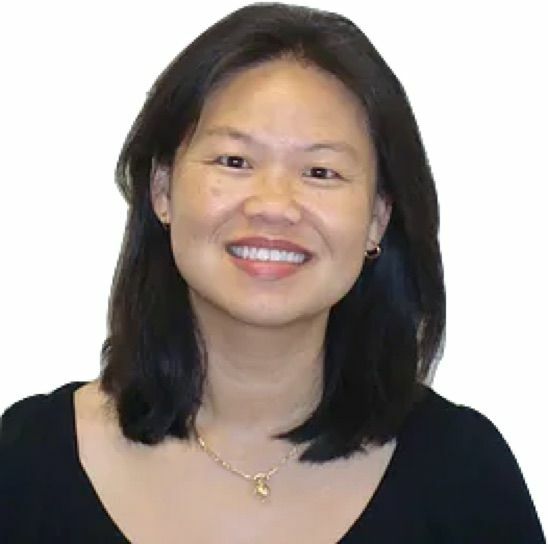
Dr. Kimmie Tang is an Associate Professor of Special Education and Early Childhood at Biola University’s School of Education. She received her doctorate of education from USC Rossier School of Education in 2008. She has been in the field of education for over 23 years, serving in various positions as an educator, program director, administrator, advocate, and researcher. Tang has worked extensively with private and public school children across all levels of abilities (typical and atypical development), types of exceptionalities and grade levels (early childhood to adulthood). As well as with students identified as at-risk, gifted, English Language Learners and First-Generation College Students. Prior to Biola, Tang was a faculty member at California Lutheran University, CSU Dominguez Hills and Mount St. Mary’s University. In Texas, she worked as an Education Specialist at Region 4 Education Service Center (ESC 4), providing professional development training, program evaluation and customized instructional services. She also served as an instructional faculty member for the LoneStar Leadership Education in Autism and Neurodevelopment Disabilities (LEND) Program at the UTHealth Children’s Learning Institute. Throughout her career, she has and continues to advocate for educational justice for all students while working in the higher institution to prepare future educators.
“As an educator, I am committed to social justice. Proverbs 21:3 says, ‘to do what is right and just is more acceptable to the Lord than sacrifice.’ In today’s world, there is no clearer example of injustice and inequality than in the disparities found in our urban educational systems. Too many students continue to be left behind, particularly students with exceptionalities, low-income students, and racial/ethnic minorities. There is a critical need to move beyond the rhetoric and to begin truly addressing issues of diversity, equity, and inclusion in our schools and classrooms. For that reason, throughout my career, I have always and continue to advocate for equitable education and serve diverse populations both inside and outside the classroom as we are all God’s children. I’m humbled by God’s grace and call to ‘use whatever gift [I have] received to serve others, as faithful stewards of God’s grace in its various forms’ (1 Peter 4: 10).”
Rosemead School of Psychology
Eu Gene Chin
Associate Professor of Psychology
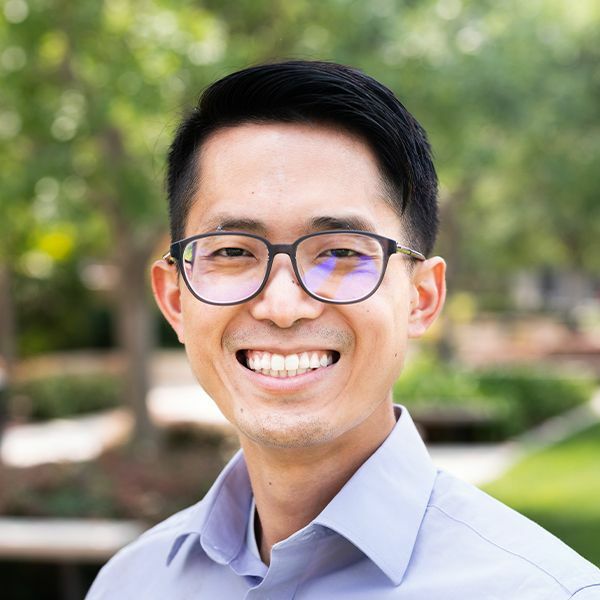
Dr. Eu Gene Chin is a Licensed and Credentialed Health Service Psychologist and Associate Professor at Biola University. He loves pouring into students, conducting research, and being a part of a vibrant academic community. Because of his international background (hailing from Malaysia), Chin is passionate about all things international when it comes to teaching, research, and/or service.
“Christian higher education is important as it allows us to intentionally consider how our personal and professional identities link and inform each other as we all strive to be like Christ,” Chin says. “Having a strong Christian foundation related to psychology helps us to inject value, meaning, and purpose into the processes that underlie the practice, research, and teaching psychology.”
Oscar Baldelomar
Assistant Professor of Psychology
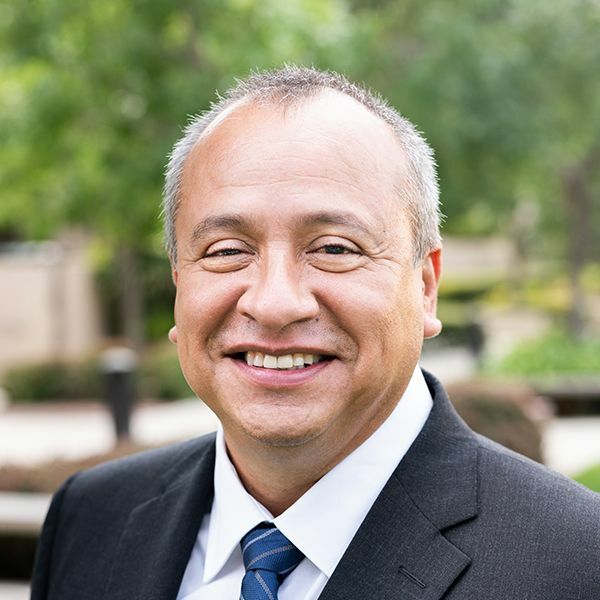
Dr. Oscar Baldelomar is a cultural developmental psychologist and a Ford Foundation Fellow. He received his Ph.D. from the University of California, Los Angeles, and an M.A. in philosophy from the California State University, Los Angeles. His research focuses on the development of minority children and youth. He is interested in the relationship between cognition and identity formation, the intersection of multiple social identities within the child and adolescent, and the interplay between culture and social development. His cross-cultural research projects in Costa Rica examine how social change impacts the identity formation and mental health of Bribri indigenous adolescents. He is interested in the integration of theology, missiology and cultural psychology.
“The value of a Christian higher education is observed in its main result: the formation of a Christian worldview, a comprehensive and harmonic understanding of reality in which God’s revelation is the ultimate source of knowledge,” Baldelomar said.
School of Cinema and Media Arts
Jim Hope
Associate Professor of Cinema and Media Arts
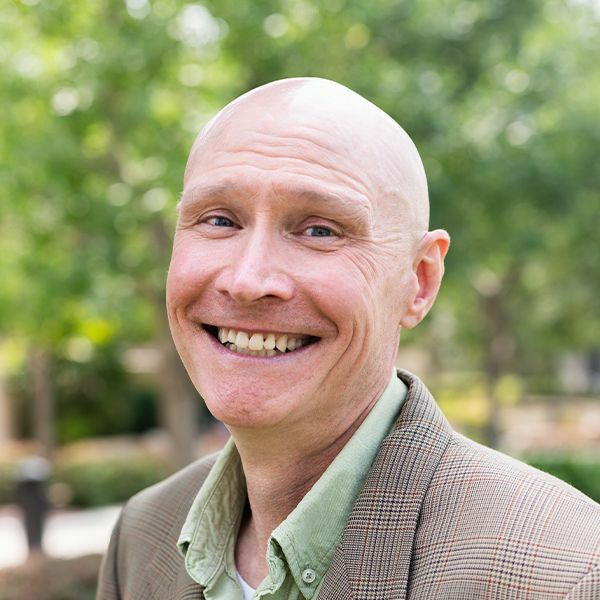
Jim Hope is a three-time Emmy nominated writer/producer who has worked on everything from feature films and network sitcoms to talk shows, game shows and animated web series. His credits include NBC’s “Later,” FOX’s “Titus, ABC’s “George Lopez,” Nickelodeon’s “Planet Sheen,” and Disney’s “Dog with a Blog.” He is currently developing animated and live-action projects with various studios and networks. Hope is also a stand-up comedian and actor who has made over fifty TV appearances. Prior to coming to Biola, Hope taught screenwriting and production classes at Chapman University and was the Executive Director of Screenwriting at Azusa Pacific University.
“Blaise Pascal made clear in his 72nd Pensee the folly of our academic enterprise absent God, suspended as we are between the inconceivable vastness of a universe measured in billions of 5,865,696,000,000-mile units and the mind-bending minuteness of an inaccessible ‘quantum realm’ (thanks ‘Antman’) where our probabilistic approximations are akin to painting on a Kleenex at the bottom of the ocean. Only through the gracious imprimatur of the LORD, whose every word instantly becomes reality and yet who knows and comforts each of us individually and personally in our sundry storms, can we have an assurance that knowledge is not relative and is not in vain.” Hope says, “In a culture that increasingly treats “truth” like Play-Doh in a nursery school, stretching, tearing, and wrapping it around shards of shattered alphabet blocks, Christian higher education doesn’t merely have a place. As a champion of objective truth, it is fast becoming one of the only places where true learning can honestly and earnestly occur.”
School of Humanities and Social Sciences
Darin D. Lenz
Professor of History
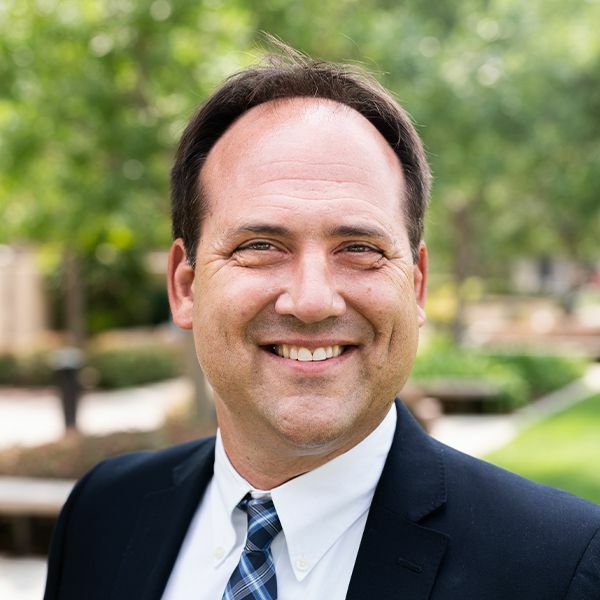
After teaching future pastors in a small Bible college in rural India as a guest instructor, Dr. Darin Lenz felt a tug from the Holy Spirit to go to seminary and study church history. After completing his seminary degree, he went on to further historical study at Villanova University. He eventually completed a Ph.D. in History at Kansas State University with a major field in the History of Christianity under the direction of the late Robert D. Linder. His research interests span from the Reformation era through the twentieth century and his work has been published in numerous edited books and academic journals. Lenz has served in a variety of staff and faculty roles at Christian colleges on the East Coast, Midwest, Pacific Northwest, and, most recently, for ten years at Fresno Pacific University where he was a professor of History. Celebrating over two decades of marriage, his wife is a program manager for an organization that serves adults with developmental disabilities and they have two sons. A Green Bay Packers fan, he also enjoys mountain bike riding, traveling and spending time with his family.
“Today, Christian higher education is under enormous stress due to the economic, social, cultural, religious, and political changes. Many institutions are abandoning their core Christian commitments in order to attract students and ensure their institutional survival. Over the short term, they may thrive, and they may even garner a degree of acclaim associated with their pursuit of contemporary relevance, but they will have done so by abandoning the core mission of Christian higher education—to educate Christians to think, live, and serve the world as founts of biblical wisdom and spiritual vitality,” Lenz said.“As a Christian historian, I believe that the Holy Spirit reveals through the study of history the folly of humans seeking to create ideal societies void of the true God—Jehovah Jireh. Thankfully, Biola remains steadfastly committed to pursuing the integration of Christian thought and practice with all academic disciplines. Here students explore and examine the human condition fully aware that the answer to the world’s problems is found only in Christ’s work and salvation.”
School of Science, Technology and Health
Darcie Hultberg
Assistant Professor of Communication Science and Disorders
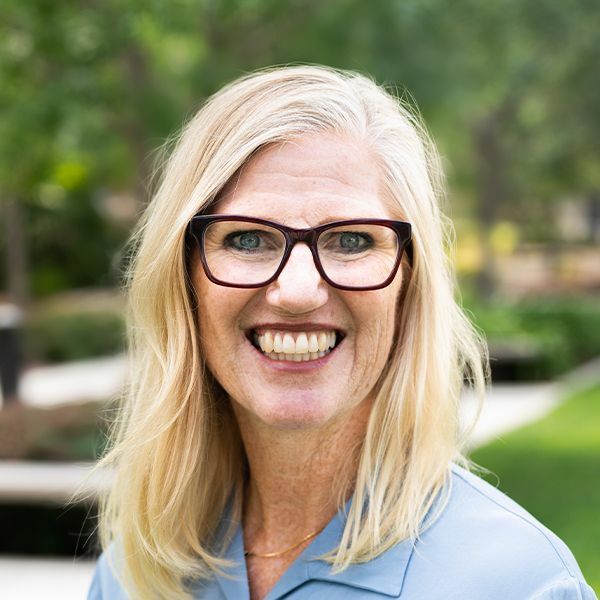
Darcie Hultberg comes to Biola University with eighteen years of experience as a Speech-Language Pathologist in both the public-school arena servicing TK-8th grade students and outpatient clinic for adults with neurological disorders. Across both settings, she has provided evidence-based therapy with the client's needs being at the core of her intervention. She has also valued the importance of educating parents, family members, professionals, para-professionals, and the community. She brings a unifying presence to her teams, appreciating their input to provide a comprehensive program that focuses on the excellent delivery of services across disciplines. Additionally, supervision and mentorship have been a passion. She has given back to Biola University and the profession by overseeing externships. She has also mentored seminary wives through Directing/Co-Directing the Talbot Women/Talbot Wives Fellowship program for 20 years. Darcie received her B.A. in Communication Disorders from Biola University, prior to attending the University of Redlands to receive her Master's Degree. She has served Biola University as an Adjunct Professor, providing supervision in the Biola Clinic and is honored to join the faculty for the 2021-2022 school year. She looks forward to training upcoming speech therapists in mind and character to impact the world for the Lord Jesus Christ.
“Each person is created in the image of God and deserves dignity and care. This is especially true for the many who struggle to communicate due to a developmental or acquired disorder. The understanding from Scripture that all are to be viewed with kindness and respect stands at the center of our studies in the Department of Communication Sciences and Disorders,” said Hultberg. “It is from this foundation that assessment and treatment can be administered with a caring and sensitive nature. Speech-language pathologists are invited to join individuals with disabilities and their family and friends to journey with them towards greater communication. It is my hope that I would prepare students not only in knowledge and skills, but with a heart attitude that reflects a deep and sure love for the Lord, and love for their neighbor, thus reflecting him in all they do.”
Ji-Yeun Park
Kinesiology and Public Health/Public Health
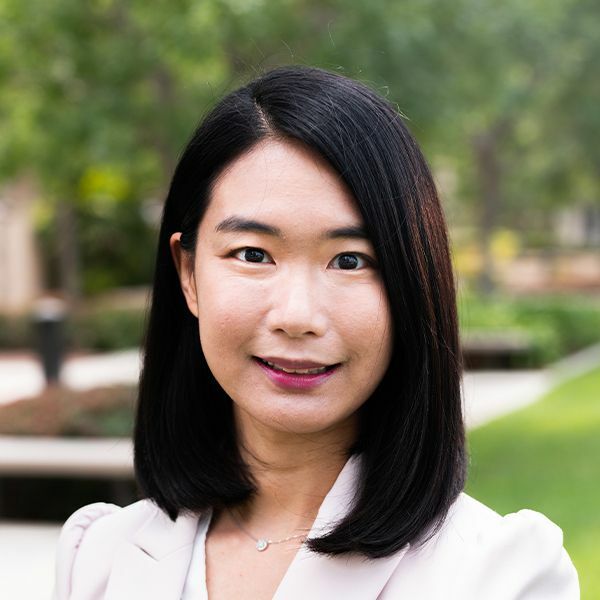
Dr. Ji-Yeun Park’s teaching focuses on health policy, social and behavioral health sciences, and research methods. The primary goal of her teaching is to provide rich learning opportunities that encourage students to think more deeply and critically about public health issues. She enjoys bringing Christian faith into the classroom so that students can better understand how the Christian faith shapes public health. Park’s research interests include substance use, with an emphasis on e-cigarettes, marijuana, and opioids, and substance abuse problems. Her work focuses on 1) examining the prevalence and determinants of substance use, 2) assessing how drug policies affect substance use behaviors, and 3) addressing substance abuse and related problems. Park conducted post-doctoral research at the Duke University Medical Center and University of California San Diego.
“Christian higher education is valuable because it teaches students how our fields of study are related to God, his words, and his works. Since the real world around us is designed by God for his purpose, we must view all subjects across academic disciplines from a biblical perspective,” said Park. “Public health is based on a strong Christian foundation. I believe that there are two core values underlying the field of public health – the sanctity of life as the foundation of public health and love as the motivation of public health. By integrating Christianity into the field of public health, students can fully understand how public health is deeply influenced by God’s truth. Christian higher education will allow us to equip public health students to serve our communities by glorifying God.”
Talbot School of Theology
Carmen Joy Imes
Associate Professor of Old Testament
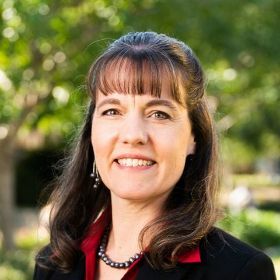
Dr. Carmen Imes brings to Biola a passion for helping students and other laypeople engage the Old Testament and discover its relevance for Christian identity and mission. Since the release of her book, Bearing God's Name: Why Sinai Still Matters (IVP 2019), Imes has appeared on more than 40 podcasts and radio shows and launched her own YouTube channel where she releases weekly "Torah Tuesday" videos. She is a guest blogger for Christianity Today, The Political Theology Network, and The Well (InterVarsity's blog for women in the academy and professions). Imes is also a frequent speaker at churches, conferences, and retreats. She previously served as professor of Old Testament and program coordinator for Bible and Theology at Prairie College in Alberta, Canada. Before earning her Ph.D. from Wheaton College, Carmen and her husband served as missionaries in the Philippines with SIM International, reaching out to ethnic minorities. Imes loves introducing students to the rich insights of the global church.
“At its heart, the mission of Christian education is to help students develop as holistic disciples of Jesus who are well prepared to engage every area of life thoughtfully and faithfully. My deep joy is to engage students across a variety of disciplines and think together about how Scripture informs their area of specialization,” Imes said. “At Biola, we are not just preparing nurses or engineers or English teachers who have also taken Bible classes on the side, but professionals who will approach their careers from a distinctly Christian point of view. Our goal is not just to impart knowledge, but to facilitate personal transformation in the context of intentional community in a way that equips students for a lifetime of faithful service.”
Dominick S. Hernández
Associate Professor of Old Testament and Semitics
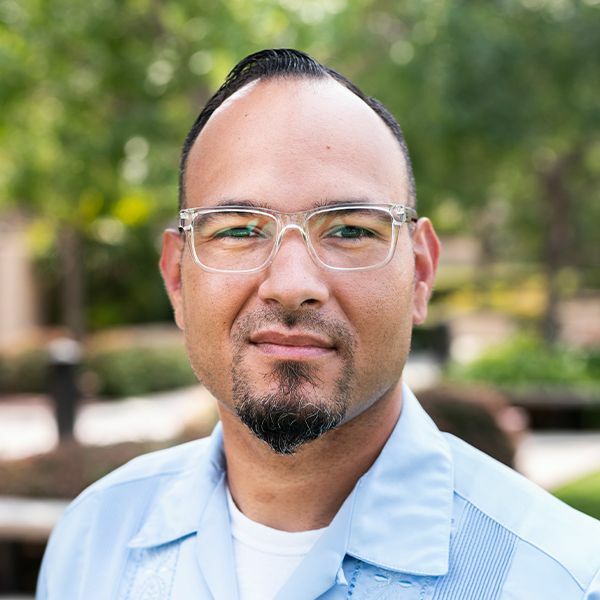
Dr. Dominick Hernández currently serves as an Associate Professor of Old Testament and Semitics at Talbot School of Theology, Biola University. Dominick completed his Ph.D. in Hebrew Bible at Bar-Ilan University (Ramat Gan, Israel), where he was trained in Semitic Philology. He is the author of Proverbs: Pathways to Wisdom (Abingdon), Illustrated Job in Hebrew (GlossaHouse), Engaging the Old Testament: How to Read Biblical Narrative, Poetry, and Prophecy Well (Baker, forthcoming) and has forthcoming commentaries on Nahum, Habakkuk, Zephaniah (Cascade), and Song of Songs (Eerdmans). Dominick teaches on an array of topics including biblical wisdom, ancient Near Eastern literature, and the Dead Sea Scrolls. You can learn more about Dominick Hernández at his website: domshernandez.com.
“Christian education is an expression of practical theology that is directly related to the world in which we live. As an educator, I strive to be aware of the diverse make-up of the student body as well as maintain sensitivity to factors that might make individual academic experiences unique,” Hernández said. “In the spirit of Jesus’ parables, it is important to craft culturally appropriate lessons that maintain a high level of engagement so that students may clearly understand the subject matter and apply it in their personal contexts for the edification of the church.”
Jeannine Hanger
Assistant Professor of New Testament
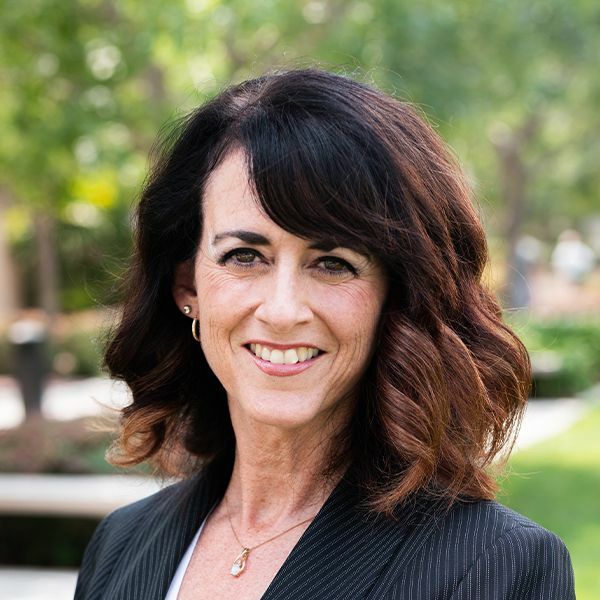
Dr. Jeannine Hanger has been involved in the Biola community since 2000. She earned a Master of Arts (2004) and Master of Theology (2009) at Talbot in New Testament Studies and has been teaching undergraduates in an adjunct role since 2009. She recently completed her doctoral studies (2021) at the University of Aberdeen, also in the New Testament. Her research interests revolve around the Gospels. More specifically she has enjoyed exploring literary approaches to texts seen alongside their ancient world contexts. Her thesis focused on participation with Christ in John’s Gospel, which led to an examination of sensory imagery, metaphor, and sense perception in ancient texts. These embodied approaches highlight concrete, tangible, and affective qualities of participation with Christ. This ties into her heart for students to know God through the Word with every aspect of their beings: heart, soul, mind, and strength. As the wife of a pastor, Jeannine has also been deeply invested in the local church. Most recently, she and her husband have enjoyed launching Coastline Covenant Church alongside dear friends in ministry. They live with their three teenaged children in the South Bay.
“Having completed my early education—undergraduate studies included—in public school contexts, I marvel at the unique setting provided by Christian higher education and at Biola specifically. Not only are students offered a diverse array of academic disciplines to study with intellectual rigor, but each discipline is expressly shaped into a program of study that seeks to integrate a biblically-minded worldview,” Hanger said. “This provides a significant opportunity to equip students for the long haul: that they would not only persist in engaging with Christ, but that they would contribute to society in a way that reflects God’s heart, in goodness, in grace and truth, and in extending a heart of compassion to others.”
 Biola University
Biola University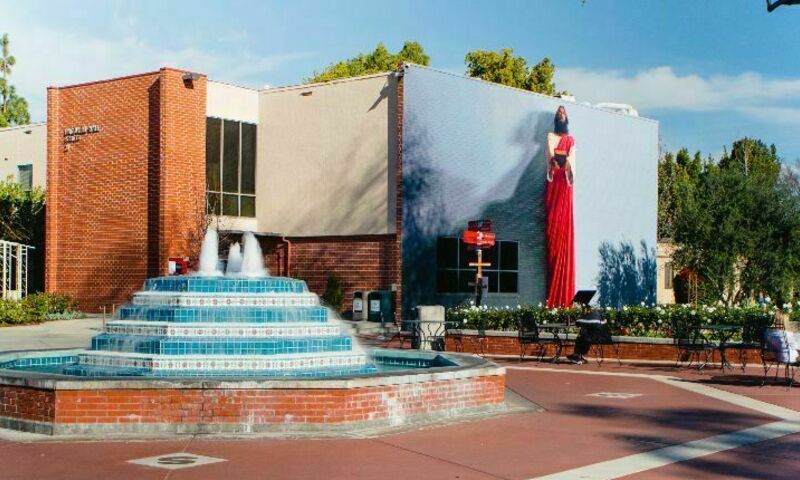
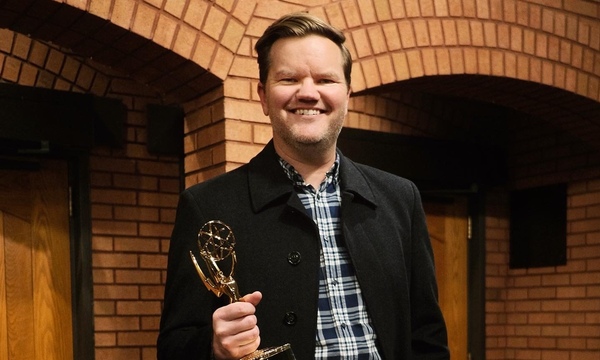
.jpg)
